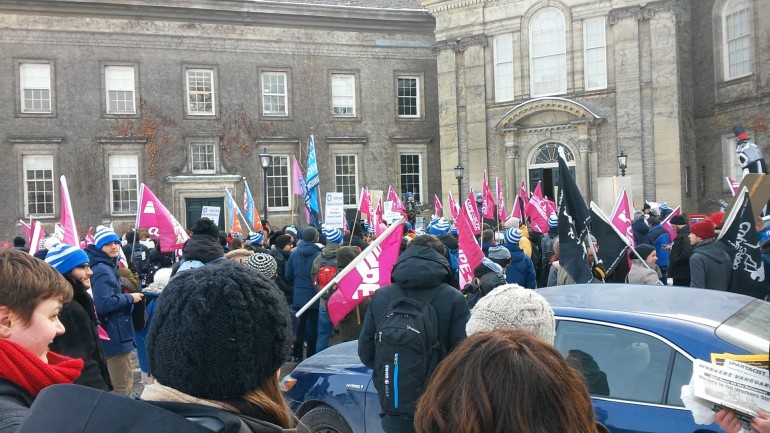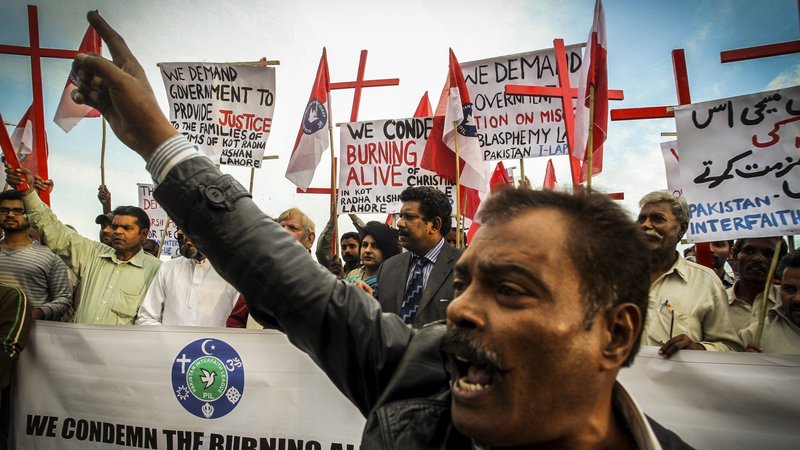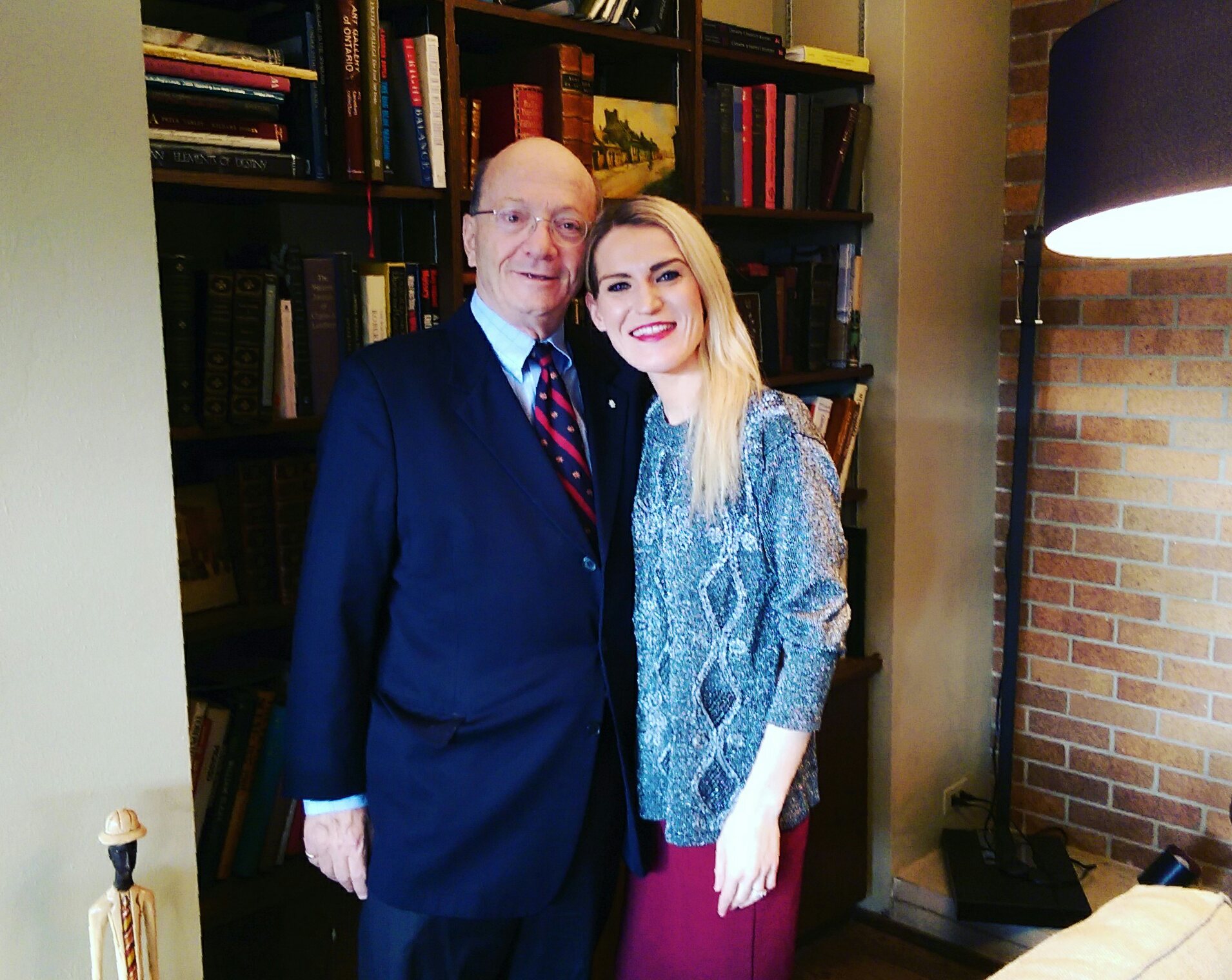When the Ryerson Student Union voted to boycott Israel during its 2014 Annual General Meeting, enough students walked out to cause the meeting’s closure.
In 2013, the University of Guelph’s Central Student Association protested development of the Alberta oil sands, provoking a backlash from the university’s Engineering Society strong enough to reach Maclean’s magazine.
The University of British Columbia’s Alma Mater Society (AMS) successfully persuaded faculty in early 2015 to join their call for divestment from fossil fuels, but the administration has remained silent.
It’s no surprise that politically minded youth, who are more likely to seek positions in student governments, might seek action on political issues of concern. In recent years, however, the particular causes célèbres have provoked a backlash from students who do not endorse the actions made in their name. Given the minimal levels of engagement with student politics, which often results in voter turnout below ten percent, it is valid to ask whether these groups have a mandate to engage in explicitly political activity.
Problems like these, compounded with inherently divisive topics, have not stopped them from trying.
The University of Toronto Student’s Union, for example, claimed to be representing more than forty thousand students when it campaigned in support of the notoriously controversial Israeli Apartheid Week, and when it paid the legal expenses of a staff member who was arrested at a demonstration in support of the Liberation Tigers of Tamil Eelam. Student consultation did not occur before either of these events, undoubtedly a contributing factor to the internal unrest within the university’s federated colleges.
In this particular case, change seems likely: the executive team which had retained office for nearly ten years lost elections in March 2015, and the new team has indicated it will step back from this kind of activism.
Of course, every campus will have local branches of political parties, as well as clubs devoted to advocating particular causes. However, for umbrella student groups to proclaim a stance on these questions is a different matter.
Even campuses with many similiarities are divided on whether such groups should be involved. The University of Manitoba Student’s Union (UMSU) declines to engage in federal politics, preferring to focus on more directly related matters like tuition fees. In contrast, the University of Winnipeg’s Student Association wholeheartedly proclaims its opinions, supporting the Canadian Federation of Students’ efforts to boycott Israeli products and divest from Israeli companies.
The existence of the latter organization, which nominally represents students across Canada, does not necessarily bolster the student movement as a whole. The CFS is beset by internal difficulties of accountability and transparency, and student unions are often left alone against more powerful administrations, with predictable results.

Consider a few specific examples. UBC’s AMS held referenda on divestment for both students and the faculty, and though turnout was a mere seventeen percent, students had a clear and well-publicized opportunity to voice their opinion. The administration’s lack of response suggests the effort was an unqualified failure.
Despite similiar referenda for the undergraduate and post-graduate students’ unions at McGill University, also backed by a faculty endorsement, the Board of Governors flatly rejected the idea. Dalhousie’s Board of Governors did the same in November 2014. This, on an environmental topic that features far more political consensus than volatile topics like the previously mentioned boycott of Israel.
The University of Windsor Student Alliance, considering whether to join the boycott, only drew ten percent of students to vote. One month later, in a campaign marred by accusations of racism, nobody was elected to the Student Alliance’s executive team, even though the incumbents ran unopposed; they received more ‘no’ votes than ‘yes’ votes. Even with more controversial topics, students are voting with their feet by not voting at all.
Though empirical data is not available, it seems reasonable to conclude that students may not even know what their student union is doing. When the Ryerson Student Union rejoined the Canadian Peace Alliance (CPA) without consultation, the occasion merited one short article in the Eyeopener, the university’s student newspaper. The CPA, a national lobby group advocating the abolition of the Canadian Armed Forces and the diversion of its resources to social programs, would almost certainly have lost if its platform were put to a vote by Ryerson students.
Similiar organizations around the country that value the opinions of their students are more than capable of consulting them before taking action. Those that do not value their students’ opinions are easy targets in elections.
To refrain from claiming the opinion of every student does not mean that umbrella student groups need to cease political engagement. They can encourage students to seize available opportunities, and enlist connections through the faculty or administration to that end. The administration at the University of Kent in Brussels does this by regularly publishing calendars of events hosted by think tanks, with some help by the French Foreign Ministry. Alternatively, they can seek commitment at a smaller level through program-specific occasions, the approach favoured by student groups at New York University. Even the most simple of methods, such as the UMSU’s efforts to raise youth voting in Winnipeg municipal elections, is a preferable alternative to the status quo.
For students in Canada, the message is quite clear: Your voice and money are being claimed and used for political issues, even if you don’t agree with your organization’s stance, and even if you don’t think these are important. Their activism is enabled by apathy – which means that the only way it will change is by action.




